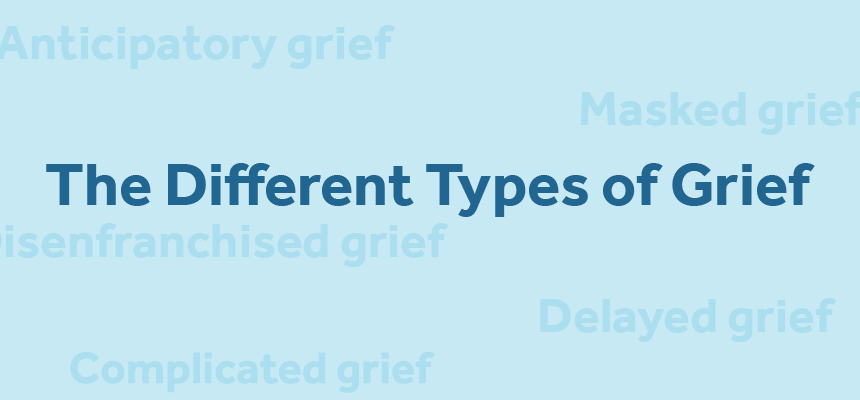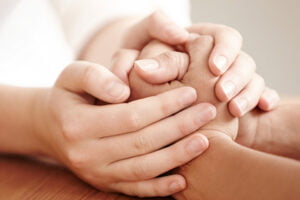Grief is a natural response to loss. It can be overwhelming, difficult, and painful. Grieving may bring up many emotions that you might not otherwise experience in your everyday life. When someone dies, it is important to understand what you are going through. There is no “normal” way to grieve. You might go through a few stages of grief. For example, you might feel sad or angry at first, then eventually get used to things and be happy again. This blog post will cover all of these stages and provide tips for coping with each stage of grief.
Contents
What is Grief?

Grief is a natural response to loss. It can be overwhelming, difficult, and painful. Grieving may bring up many emotions that you might not otherwise experience in your everyday life. When someone dies, it is important to understand what you are going through. There is no “normal” way to grieve. You might go through a few stages of grief. For example, you might feel sad or angry at first, then eventually get used to things and be happy again. This blog post will cover all of these stages and provide tips for emotional support at each stage of the process.
Types of Grief

- Complicated Grief: Complicated grief is a type of grief that does not follow the typical five stages. It might include symptoms like depression and anxiety that last for more than six months after the death.
- Traumatic Grief: Traumatic grief is a type of grief that comes from experiencing or witnessing a traumatic event. This can include things like car accidents, natural disasters, or the death of a loved one.
- Normal Grief: Normal grief is what most people experience after someone dies. It includes the five typical stages of grief and usually goes away within a year.
- Sudden Grief: Sudden grief is what happens when you lose somebody suddenly, like in an accident. This can be especially hard to handle because you were not prepared for the death.
- Anticipatory Grief: Anticipatory grief is what people experience when they know somebody is going to die, like a loved one with a terminal illness. This can be hard because you are preparing for death but it is still difficult when it happens.
- Disenfranchised Grief: Disenfranchised grief is a type of grief that is not recognized by society. This can be things like the death of an animal, a miscarriage, or the death of a loved one from suicide.
Symptoms of Grief

Symptoms of grief can vary from person to person. Some common symptoms include:
- feeling sad, angry, or overwhelmed
- crying a lot
- having trouble sleeping
- eating too much or too little
- withdrawing from friends and activities
- feeling confused, lost, or lonely
Experiencing any of these symptoms can be difficult, especially if you are grieving the loss of a loved one. It is important to understand that these symptoms are normal and will eventually go away.
Stages of Grief
- Denial: In this stage, you might not want to believe that someone died. You would rather have it be a dream or some other false reality than the truth.
- Anger: This is another common response in which you get angry at something or somebody about what happened. Maybe your anger will lead you to blame yourself for certain things and feel guilt.
- Bargaining: You might start bargaining with God or whoever you believe in about what could have been done to prevent the death. You may offer things that you are not even sure you can do.
- Depression: If you feel sad, hopeless, and miserable a lot of the time after someone dies it might be because you are depressed. You may have trouble being happy again until this stage is over.
- Acceptance: To move on from grief, you need to accept that your loved one has died. You need to say goodbye and let go of the past for your life to continue.
Tips for Emotional Support at Each Stage of Grief
- Denial: When someone you love dies, it is natural that you might not want to believe what has happened right away. This can be especially true if they died unexpectedly or by suicide. It can be helpful to talk about your feelings with someone who will listen without giving advice.
- Anger: Anger is a natural reaction when someone dies. If you get angry, it might hurt other people too. Your family and friends might also have their way of grieving that might not match up with yours. It can be helpful to have an outlet for your anger, like exercise or writing.
- Bargaining: This stage is often a time when people try to make deals with God to bring their loved ones back. This is an intense and personal time so it might be helpful to talk to someone who you know will not judge your feelings.
- Depression: You might feel like it is useless or hopeless to continue after a loved one dies, but that does not mean there are no reasons for living anymore. This can be especially true if the death was sudden and unexpected. It may help to seek out social support from friends or family or to talk to a therapist who can help you cope with grief and work through your feelings.
- Acceptance: Accepting that someone has died is often the hardest part of grieving. It means saying goodbye and letting go of the past for your life to continue. This might be something you need to do on your own time and in your way. You can talk to a therapist or religious advisor if you have trouble accepting that the person leaves.
In order to help someone who has experienced emotional trauma in coping with grief, those around them need to understand what they are going through and know how best to support them.
Seeking Support For Coping with Grief and Loss

It can be helpful to talk about your feelings with someone who will listen without giving advice.
If you find it hard to get through the stages of grief, please talk to a therapist. If there is an emergency, please go to a funeral home or hospital. You can also call a hotline like [suicide hotline number] if you need to talk about what’s going on.
There are also things like daily meditations and life coaching that can help coping with grief. If you would rather do this alone, there is plenty of information online on how to deal with loss, death, and bereavement.
When someone dies it is important not to forget them. They were a part of your life and they will always be in your heart. Continue to remember the good times you shared and keep their memory alive. Following are a few things that you can try:
- Turn to friends and family: When you are feeling down, it can be helpful to talk to friends and family about your loved one. They will want to hear your memories and they might have some stories of their own.
- Create a memorial: A memorial is a great way to keep the person’s memory alive. You can create a shrine or altar in your home, put up pictures and memories on social media, or write a journal.
- Accept that people feel awkward to console: It is normal for people to feel awkward when trying to console someone who is grieving. They might not know what to say or how to act. Don’t be offended if they can’t make you feel better, just accept their support and move on.
- Draw comfort from your faith: If you have faith, draw comfort from it. Pray, read scriptures, or go to church. This can be a great way to find peace during difficult times.
- Join a support group: A support group can be a great way to connect with other people who are grieving. It can be helpful to talk to people who understand what you are going through.
Taking Care Of Self
In addition to seeking emotional support, it is important to take care of yourself. This includes eating healthy and exercising, getting enough sleep, and avoiding drugs and alcohol. These things can be hard when you are grieving, but they are important for your overall health.
- Face your feelings: When you are grieving, it can be easy to avoid your feelings. This is a normal reaction but it won’t help the healing process. It is important to face how you feel and let yourself grieve in healthy ways without hurting others or yourself. Remember that this feeling will go away. Everyone feels sad when they lose someone close to them, but eventually, the pain will lessen.
- Express Your Feelings: Another way to deal with your grief is to express your feelings. This can be done through writing, art, or music. Do something for the person who died. There are many things you can do to remember and honor the person who died. You could plant a tree in their memory, make a donation to a charity they cared about, or write a letter to them.
- Maintain your hobbies and interests: Don’t let your grief consume you. Continue to do the things you enjoy and make time for yourself. This can be a great way to keep your loved one’s memory alive.
- Look after your physical health: When you are struggling with grief, it can be easy to neglect your health. This is a common reaction but it won’t help coping with grief. It is important to eat healthily and exercise regularly to stay physically and emotionally strong.
- Plan for grief triggers: Triggers are things that can cause you to feel sad or overwhelmed. It is important to be prepared for these triggers and have a plan in place to deal with them.
This could be anything from talking to a friend, doing something nice for someone else, or taking time out.
Conclusion
The process of grieving and then coping with grief is different for everyone and there’s no right or wrong way to do it. This blog post has provided you with some strategies on how to help yourself cope, but always remember that you’re not alone in this journey. There are many people who will support and love you during your time of sadness and despair. If you need someone to talk to, we offer free grief counseling services at our offices located throughout the country–find an office near you today!
For more information, please contact MantraCare. Grief is a natural and complex emotional response to loss or change. If you have any queries regarding Online Grief Counseling experienced therapists at MantraCare can help: Book a trial therapy session



